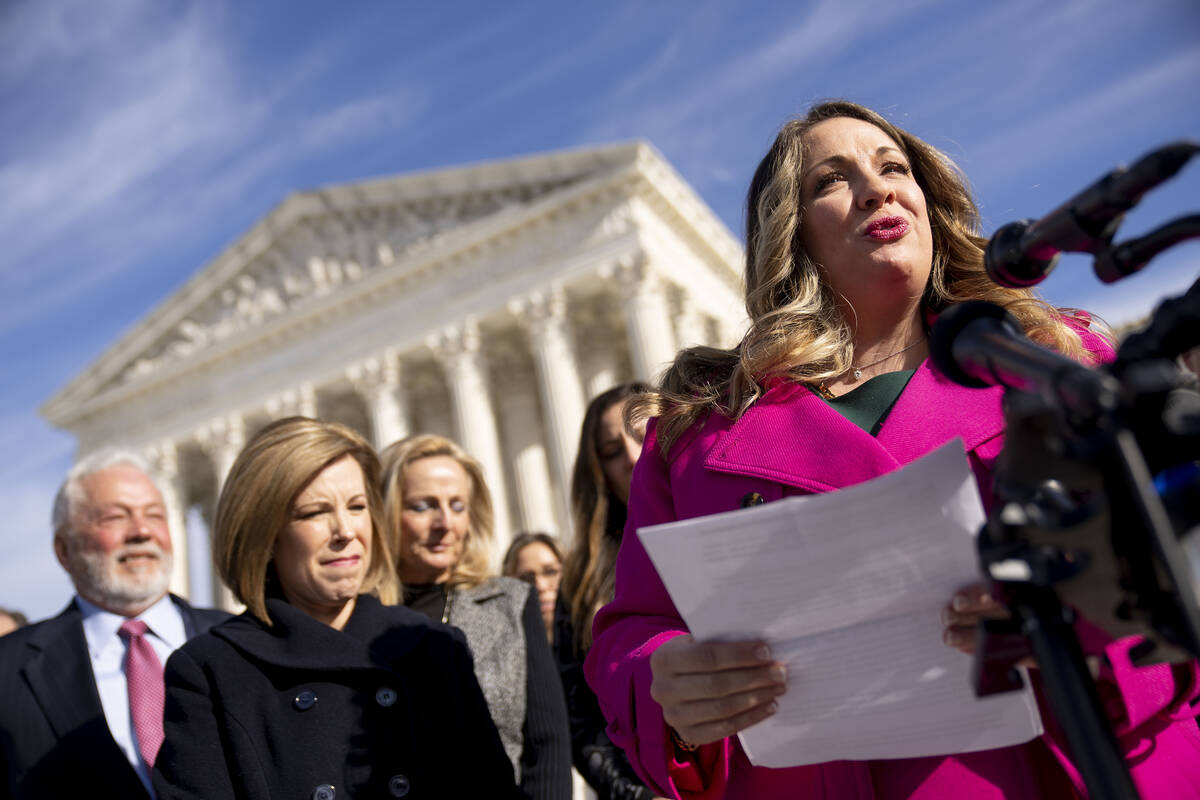CLARENCE PAGE: A troubling Supreme Court defense of free speech at expense of LGBTQ rights
As a strong believer in the First Amendment, I respect the Colorado graphics artist who didn’t want to make wedding websites for gay couples, even though I strongly oppose her stance.
That’s partly because I’m old enough to remember road trips with my family to visit Southern relatives in the last days of Jim Crow racial segregation in the early 1960s.
Ominous signs saying “White,” “Colored” and “We reserve the right to refuse service to anyone” signaled where we could eat, sleep or go to a restroom on our travels.
“That’s why colored people buy such big cars,” a couple of my road-running cousins explained.
That’s what the “Green Book for Negro Motorists” was all about. It listed businesses that would serve Black motorists with dignity, not derision.
States that had “public accommodation” laws offered some protection until the 1964 Civil Rights Act and other legislation brought an end to legal Jim Crow. Although in a form of post-traumatic stress disorder for my generation of Black folk, I am occasionally haunted by the notion, no matter how far-fetched, that we’re only a small step away from those bad old days slipping back in on us again.
That’s how I felt about the current Supreme Court’s ruling that a Colorado website designer could legally deny service to same-sex weddings, citing her own Christian beliefs.
In 303 Creative LLC v. Elenis, the web designer Lorie Smith sought the high court’s permission to publicly declare that her religious convictions would not allow her small web design company “to create websites for same-sex marriages or any other marriage that is not between one man and one woman.”
And, while she cited a religious objection, the high court’s six conservatives in a majority opinion written by Justice Neil Gorsuch, framed their argument on First Amendment grounds. (The court’s three liberal justices dissented.)
“As surely as Ms. Smith seeks to engage in protected First Amendment speech, Colorado seeks to compel speech Ms. Smith does not wish to provide,” Gorsuch wrote.
“Taken seriously,” Gorsuch continued, “that principle would allow the government to force all manner of artists, speechwriters and others whose services involve speech to speak what they do not believe on pain of penalty.”
Smith did point out that she had taken work from a Jewish group before as evidence that she was not unwilling to work with people of other faiths. But similar tolerance for gay marriage was, for her, too much.
No, I don’t see the walls of the republic crashing in because Smith shuns gay weddings. But I do see a sad return to the bad old days, considering how Smith’s request conflicts with the law in most of the nation’s jurisdictions, including Colorado.
Public accommodations laws, a major issue in the civil rights era, in those jurisdictions requires businesses open to the public to serve all of the public. That means no discrimination on the basis of sex, including discrimination based on sexual orientation or gender identity.
A District Court had ruled against Smith in 2019, saying she had not been harmed because the state had not actually investigated her, and so she lacked legal standing to oppose the law.
She appealed to the 10th U.S.. Circuit Court of Appeals, which also held against her in a 2-to-1 ruling, saying anti-discrimination laws are “essential” to maintaining the “Democratic ideal.”
Lovely thought. I agreed. Besides, strong arguments have been made for how this case has questionable legitimacy.
For one thing, Smith and her company had never actually been asked to design a website for a same-sex wedding. The prospective customers cited in court filings turned out to a man and a woman. But the justices didn’t go there or to Smith’s religious beliefs. They focused instead on the free speech issue.
As liberal Justice Sonia Sotomayor noted during oral arguments in December, this may be “the first time in the Court’s history … (that) a commercial business open to the public, serving the public … could refuse to serve a customer based on race, sex, religion or sexual orientation.”
That sounds about right to me. The debate over gender rights is not exactly the same as other civil rights debates, but it’s close enough to make one wonder with dread about what we can expect next from this backward-looking court.
Contact Clarence Page at cpage@chicagotribune.com.






















